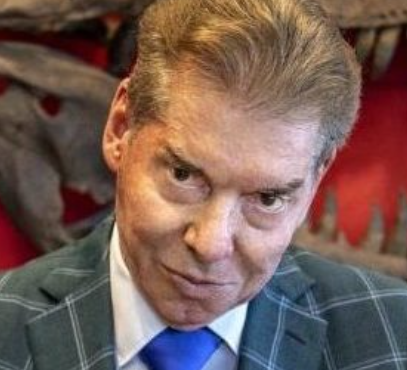Vince McMahon is a name synonymous with the world of professional wrestling, and for good reason. As the chairman and CEO of World Wrestling Entertainment (WWE), McMahon has been at the forefront of shaping the industry into what it is today
From humble beginnings to global dominance, the McMahon family’s journey in WWE is nothing short of extraordinary.
Vince McMahon’s journey in WWE is a testament to the power of vision and determination. From its humble beginnings to its current status as a global phenomenon, WWE’s evolution under McMahon’s leadership is a story of triumph and success.
As the wrestling world continues to evolve, one thing is certain: the McMahon family’s legacy in WWE will endure for generations to come.
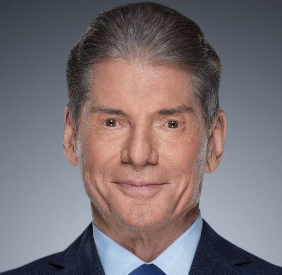
Also Read: Dominik Mysterio: Surprising Moves on WWE SmackDown, Career, Net Worth 2024 and New Tattoo
Table of Contents
Vincent McMahon: Bio/Wiki
Vincent Kennedy McMahon, born on August 24, 1945, is a prominent figure in the world of professional wrestling and sports entertainment.1
McMahon, alongside his wife Linda, co-founded the modern WWE, which stands as the world’s largest professional wrestling promotion.
Beyond wrestling, McMahon has delved into various sports ventures, including the World Bodybuilding Federation and the XFL football league. He is also the owner of Alpha Entertainment.
Early Life and Career Beginnings
McMahon graduated from East Carolina University with a business degree in 1968.
His journey in professional wrestling commenced as a commentator for WWE, known then as the World Wide Wrestling Federation or WWWF, during much of the 1970s.
— Vince McMahon (@VinceMcMahon) April 3, 2023
The Rise of WWE
In 1982, McMahon acquired WWE from his father, Vincent J. McMahon, marking a significant turning point in the industry.
He transformed WWE into a dominant force, nearly monopolizing professional wrestling in the United States. This era saw the inception of WrestleMania, an annual event that has become one of the most successful in the realm of professional wrestling.
Industry Dominance and Competition
Despite WWE’s success, the industry faced stiff competition from World Championship Wrestling (WCW) in the 1990s.
However, McMahon orchestrated a strategic move by purchasing and merging WCW into WWE in 2001, solidifying WWE’s dominance in the market.
Additionally, WWE acquired the assets of the defunct Extreme Championship Wrestling (ECW) in 2003, further strengthening its position in the industry.
McMahon’s Vision and Impact
McMahon’s visionary leadership and innovative approach to storytelling and character development have revolutionized professional wrestling.
His ability to captivate audiences and create compelling narratives has set WWE apart from its competitors. McMahon’s influence extends beyond wrestling, as he has been involved in various philanthropic endeavors and has appeared in films and television shows.
Vincent Kennedy McMahon’s legacy in professional wrestling is unparalleled. His contributions have shaped the industry, leaving a lasting impact on sports entertainment.
As the driving force behind WWE, McMahon’s vision and determination have cemented his status as a pioneer in the world of professional wrestling.
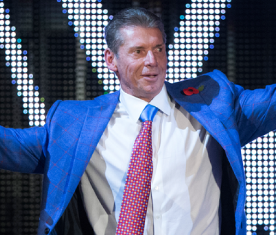
Vince McMahon: Early Life, Family
Vince McMahon, the legendary figure behind the success of WWE, was born on August 24, 1945, in Pinehurst, North Carolina.2
His early years were marked by challenges and familial upheavals that would later shape his tenacity and vision.
Childhood Struggles
McMahon’s childhood was far from conventional. His father, Vincent James McMahon, left the family when Vince was just a baby, taking his older brother with him.
Vince did not meet his father until he was 12 years old, leaving him to be raised primarily by his mother, Victoria.
However, his upbringing was marred by instability as he lived with various stepfathers, enduring hardships that would later fuel his drive for success.

Ancestral Roots
Vince McMahon’s lineage is steeped in Irish heritage. His paternal grandfather, Roderick James “Jess” McMahon, was a renowned boxing promoter.
Vince’s paternal grandmother, Rose Davis, also hailed from Irish descent, highlighting the strong roots of the McMahon family in Irish culture.
Personal Challenges
Despite his family’s background, McMahon faced personal struggles. He was known to have dyslexia, which made his academic journey challenging.
Additionally, he recounted a harrowing experience with one of his stepfathers, Leo Lupton, who he claimed was abusive towards his mother.
McMahon’s response to this adversity was characteristic of his resilience, stating that he would have “enjoyed” avenging his mother’s mistreatment.
Education and Beyond
McMahon’s educational journey led him to graduate from Fishburne Military School in Waynesboro, Virginia, in 1964. Despite his dyslexia, he persevered, showcasing early signs of his determination and resilience.
Vince McMahon’s early life was marked by challenges that shaped his character and resilience. His Irish heritage, coupled with his family’s tumultuous dynamics, laid the foundation for his future endeavors.
McMahon’s story is a testament to overcoming adversity and transforming challenges into opportunities for growth and success.
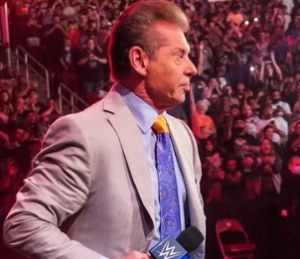
Vince McMahon: The Purchase of the WWF
Professional wrestling has long been a staple of American entertainment, captivating audiences with its unique blend of athleticism and storytelling.3
In the 1980s, the industry experienced a significant boom, thanks in large part to the vision and innovation of one man: Vince McMahon.
McMahon’s purchase of the World Wrestling Federation (WWF) in 1982 marked the beginning of a new era in professional wrestling, one that would see the sport transform into a global phenomenon.
The Purchase of the WWF
In 1982, Vince McMahon acquired the WWF, which at the time was just one of many regional wrestling promotions scattered across the United States.
Unlike other promoters who adhered to a gentleman’s agreement not to encroach on each other’s territories, McMahon had grander ambitions for the WWF.
He envisioned a national wrestling promotion that would transcend regional boundaries and appeal to a mainstream audience.
Expanding the WWF’s Reach
To achieve his vision, McMahon began aggressively expanding the WWF’s reach beyond its traditional Northeast U.S. stronghold.
He started promoting shows in new markets and signed talent from other promotions, most notably Hulk Hogan from the American Wrestling Association (AWA).
Hogan’s arrival in the WWF marked the beginning of a new era, as McMahon positioned him as the promotion’s top star and a cultural icon.
The Rock ‘n’ Wrestling Connection
McMahon’s innovative approach to wrestling also included incorporating elements of pop culture into the WWF’s storylines.
This strategy, known as the Rock ‘n’ Wrestling Connection, saw the WWF collaborate with popular music stars, further expanding its appeal to a mainstream audience.
This approach proved highly successful, as the WWF’s popularity soared, and it became a household name.
The Birth of WrestleMania
One of McMahon’s most significant contributions to professional wrestling was the creation of WrestleMania.
Launched in 1985, WrestleMania was the first of its kind, a pay-per-view extravaganza that brought together the biggest stars in wrestling for a single, spectacular event.
The inaugural WrestleMania, held at Madison Square Garden, was a massive success, drawing fans from across the country and solidifying the WWF’s position as the premier wrestling promotion in the world.
The Expansion of Sports Entertainment
- Under McMahon’s leadership, the WWF evolved into more than just a wrestling promotion; it became a full-fledged sports entertainment brand.
- McMahon’s savvy marketing and promotion efforts helped the WWF attract a broader audience, including families and casual fans. This shift toward family-friendly entertainment was a key factor in the WWF’s success during the 1980s.
- Vince McMahon’s purchase of the WWF in 1982 marked the beginning of a new era in professional wrestling.
- Through innovative marketing strategies, bold business decisions, and a keen understanding of what audiences wanted, McMahon transformed the WWF into a global powerhouse.
- The 1980s wrestling boom, characterized by the rise of WrestleMania and the mainstream popularity of professional wrestling, was a testament to McMahon’s vision and the enduring appeal of professional wrestling as a form of entertainment.

Vincent McMahon: The Legacy and Controversies
Vincent McMahon, widely known as Vince McMahon, has been a prominent figure in the world of professional wrestling for decades.
From his humble beginnings to his rise as the chairman of World Wrestling Entertainment (WWE), McMahon’s career has been marked by both success and controversy.
Vince McMahon was born into a wrestling family on August 24, 1945, in Pinehurst, North Carolina. His father, Vincent J. McMahon, was a wrestling promoter, and young Vince grew up surrounded by the world of professional wrestling.
After graduating from East Carolina University with a degree in business administration in 1968, McMahon began working for his father’s wrestling company, Capitol Wrestling Corporation (CWC). He started in a low-level position, learning the ropes of the business from the ground up.
Rise to Prominence
In 1972, McMahon purchased CWC from his father and began implementing changes to the company. He rebranded it as the World Wrestling Federation (WWF) and started expanding its reach beyond the traditional territories of professional wrestling.
McMahon’s big break came in the 1980s when he launched WrestleMania, a groundbreaking pay-per-view event that showcased the WWF’s top stars and brought in millions of viewers.
WrestleMania’s success catapulted McMahon and the WWF into the mainstream, making wrestling a pop culture phenomenon.
Transformation of WWF into WWE
In 1999, McMahon took the WWF public, renaming it World Wrestling Entertainment (WWE) due to a legal dispute with the World Wildlife Fund over the “WWF” initials.
Under McMahon’s leadership, WWE continued to grow its audience, expanding into international markets and launching successful TV shows like “Raw” and “SmackDown.”
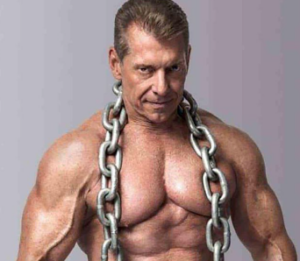
Controversies and Legal Issues
Throughout his career, McMahon has faced his share of controversies and legal challenges. In 1994, he was indicted on charges of distributing steroids to WWF wrestlers, though he was later acquitted.
More recently, in January 2024, McMahon resigned as executive chairman of TKO Holdings, WWE’s parent company, amidst a federal investigation into sexual misconduct allegations against him.
McMahon has denied the allegations, calling them “made-up instances that never occurred.”
Despite these controversies, McMahon’s impact on the world of professional wrestling is undeniable. He has revolutionized the industry, turning it into a global entertainment powerhouse.
While his legacy may be tarnished by scandal, his contributions to wrestling are lasting.
